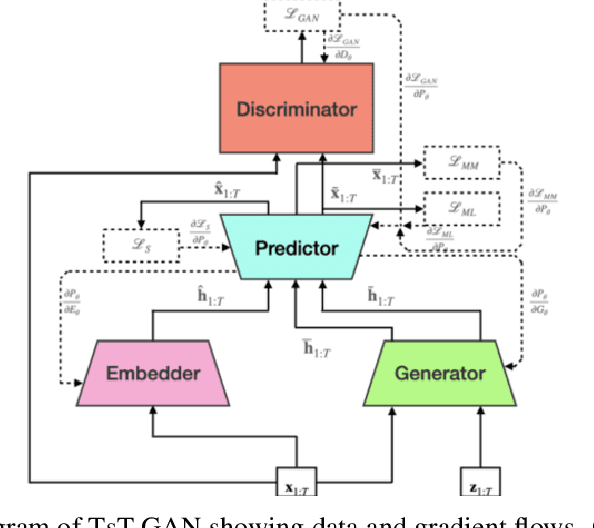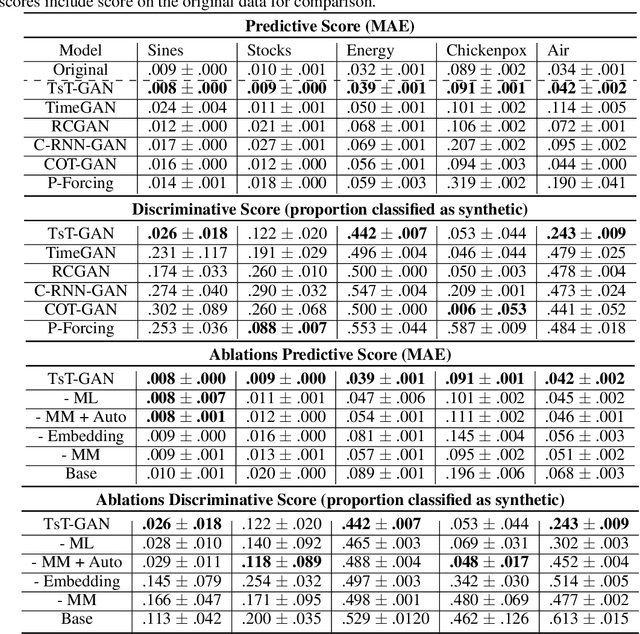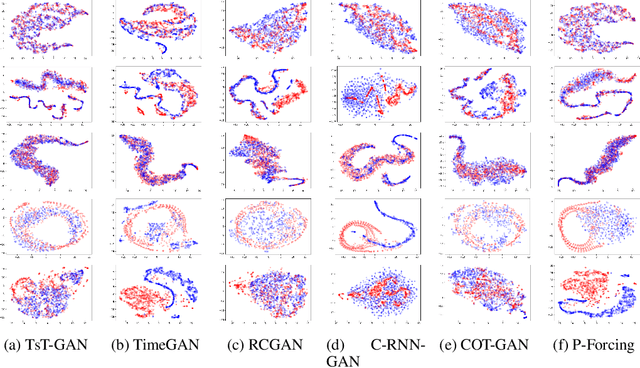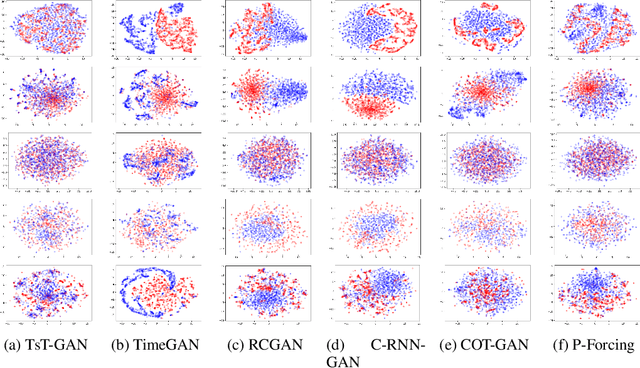Time-series Transformer Generative Adversarial Networks
Paper and Code
May 23, 2022



Many real-world tasks are plagued by limitations on data: in some instances very little data is available and in others, data is protected by privacy enforcing regulations (e.g. GDPR). We consider limitations posed specifically on time-series data and present a model that can generate synthetic time-series which can be used in place of real data. A model that generates synthetic time-series data has two objectives: 1) to capture the stepwise conditional distribution of real sequences, and 2) to faithfully model the joint distribution of entire real sequences. Autoregressive models trained via maximum likelihood estimation can be used in a system where previous predictions are fed back in and used to predict future ones; in such models, errors can accrue over time. Furthermore, a plausible initial value is required making MLE based models not really generative. Many downstream tasks learn to model conditional distributions of the time-series, hence, synthetic data drawn from a generative model must satisfy 1) in addition to performing 2). We present TsT-GAN, a framework that capitalises on the Transformer architecture to satisfy the desiderata and compare its performance against five state-of-the-art models on five datasets and show that TsT-GAN achieves higher predictive performance on all datasets.
 Add to Chrome
Add to Chrome Add to Firefox
Add to Firefox Add to Edge
Add to Edge